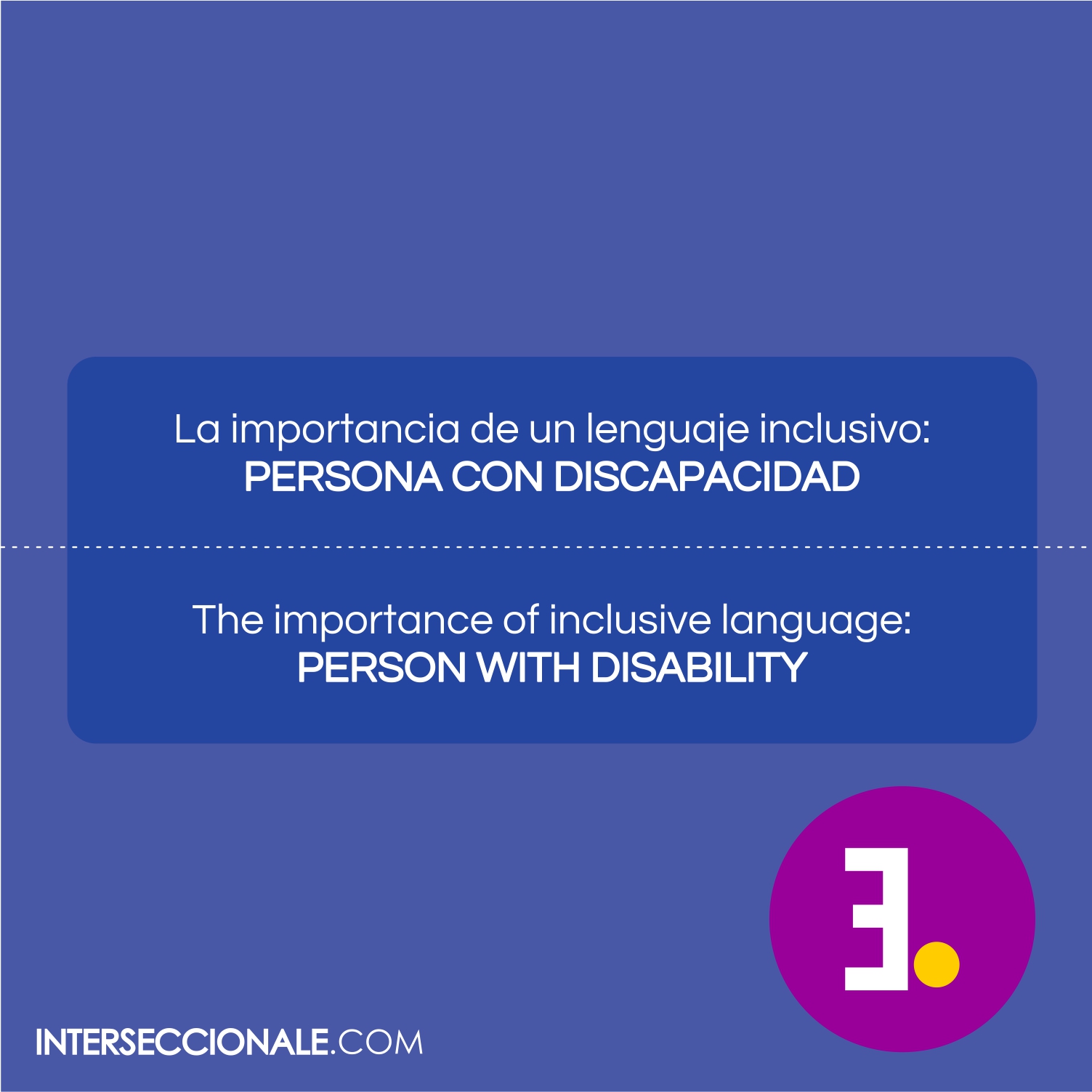Today, we want to address a topic that often goes unnoticed but is crucial in the fight for diversity and inclusion: language. Did you know that how we express ourselves can reflect our biases and perpetuate stereotypes?
So, why is it wrong to say “disabled”? The answer is simple: because before any label, we are people.
Saying “disabled” reduces someone to a single characteristic, forgetting their humanity, individuality, and potential. But when we speak of a “person with a disability,” we acknowledge that they are individuals who are much more than a feature that makes up their identity.
Intersectional perspective invites us to see beyond disability. What other aspects define this person? What are their passions, dreams, and achievements? By using inclusive language, we take the first step in understanding all individuals in their entirety.
We understand that changing our way of speaking can be a challenge, but it is a crucial step towards a fairer and more respectful society.

#Interseccionale #Inclusion #Diversity #InclusiveLanguage #Disability #PersonWithDisability #EqualOpportunities #Respect #DiverseAbilities #Empathy #InclusiveCommunity #HumanRights #SocialInclusion #WeAreAllEqual #Accessibility #InclusiveEmployment